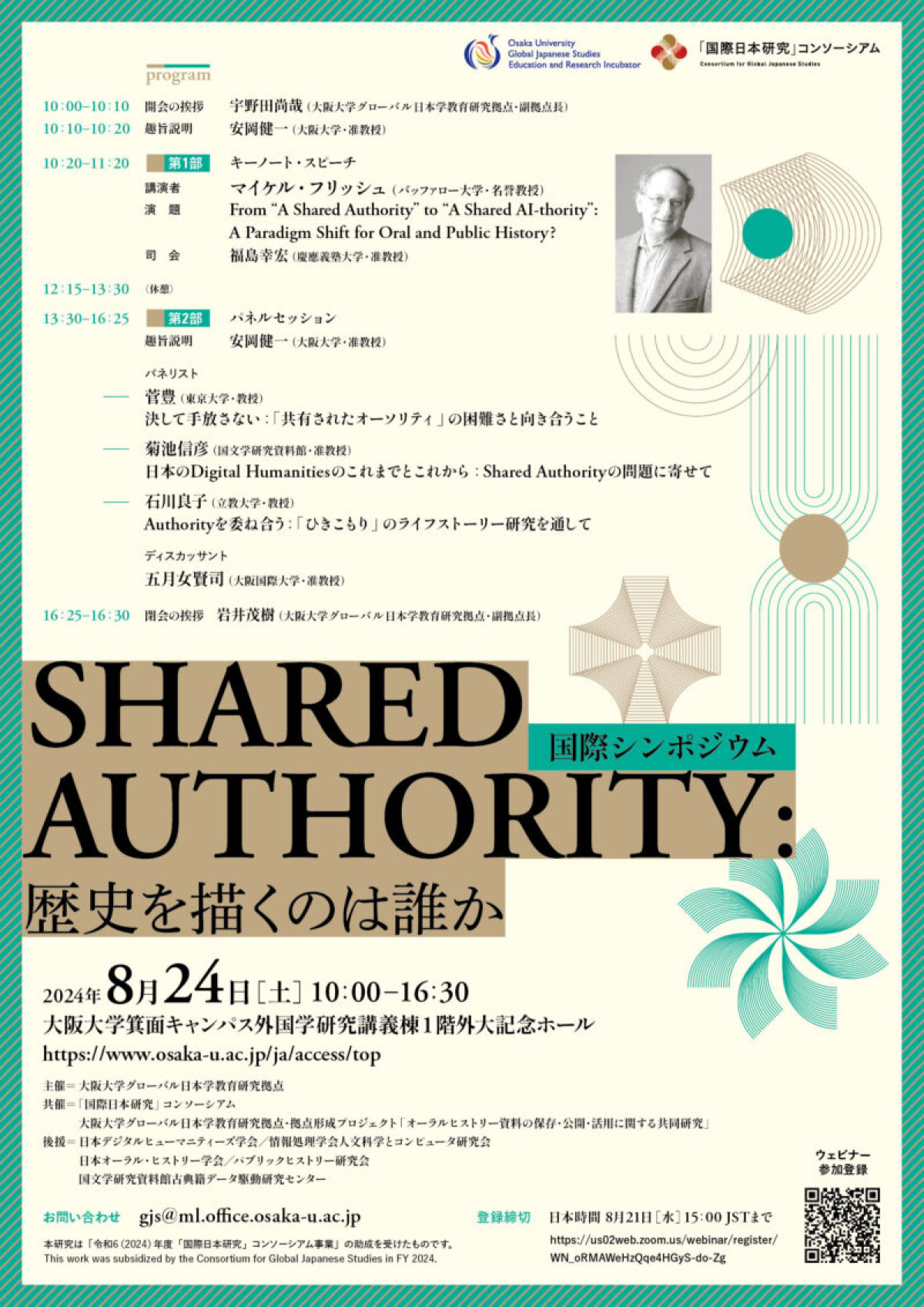
“Shared Authority” in Japan: Writing History as a Public Practice in the Digital Age

To promote interdisciplinary, international, and community-based research and education in Japanese studies, the Osaka University Global Japanese Studies Education and Research Incubator (GJS-ERI) provides backing for a variety of collaborative projects that aim to develop new research networks. This international symposium presents some of the outcomes of a project from the 2022–25 funding period titled “Collaborative Research into the Preservation, Accessibility, and Use of Oral History Resources”.
Since the 1990s, international conflicts over the historical past have become more frequent, as evidenced by the prevalent use of the term “memory wars”. At the same time, the public importance of history has been reaffirmed, and the sharing of historical resources through digitization and collaboration with the public offers new opportunities. How do we represent history in the present? This question represents both a crisis and an opportunity and is linked to the problem of who “we” are. A number of possible answers have emerged from humanities and social sciences research taking place in Japan today. However, the academic trends inside and outside of Japan have not always been placed in productive conversation with each other.
With these issues in mind, this symposium will focus on the contributions of Michael Frisch, a distinguished researcher who proposed the revolutionary concept of “shared authority”. At the symposium, Professor Frisch will discuss how he has put his ideas into practice over time, a story that has not yet been conveyed sufficiently to Japanese audiences. Further, he will attempt to respond to developments that have taken place in Japan. In the afternoon session, the symposium will include presentations by leading Japanese scholars in the fields of public history, oral history, and digital humanities who will comment on the history and current state of their respective fields. The Japan Oral History Association will be represented by its current president Ishikawa Ryoko (Rikkyo University), Suga Yutaka (University of Tokyo) of the Japanese Association of Public History will speak on public history in Japan, Kikuchi Nobuhiko (National Institute of Japanese Literature) will report on digital humanities, and Saotome Kenji from the field of museum studies will serve as a discussant.
By bringing together established scholars from multiple countries and the next generation of humanities scholars and social scientists, and by helping to forge productive new relationships between them, this symposium will contribute to the development of all disciplines involved.